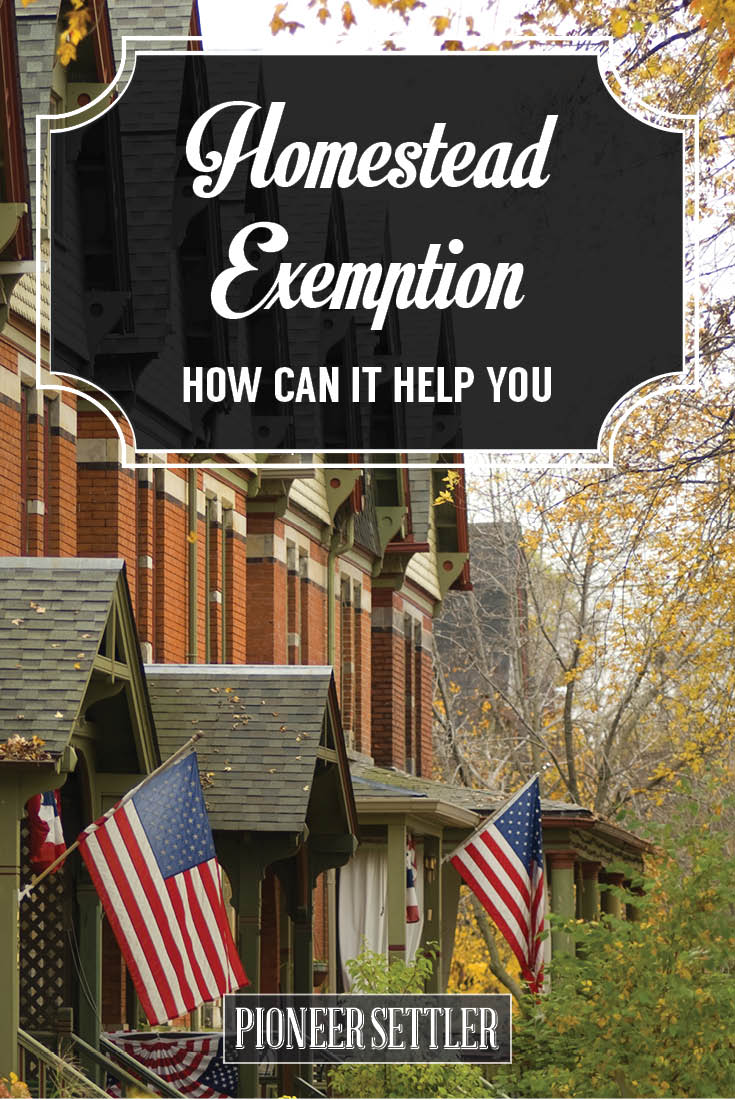What is homestead exemption, and how can it help you?
What Is a Homestead Exemption?
Economic recessions and depressions aren't a modern invention. Throughout the 1800s, boom and bust cycles were typical. During the bust cycles or times of economic depression, many homeowners lost their homes to creditors. Drought, flood, tornadoes and other disasters, along with depressed currency values, made it impossible for homeowners to pay their debts. Creditors seized their farms and homes, leaving them penniless and homeless.
To protect the rights of homeowners, laws were enacted at the state level throughout the United States to protect homes and farms. These so-called homestead exemption laws vary by state. In the southern United States, most homestead exemption laws are based on Spanish Colonial law. In the northern and western territories, existing southern state homestead exemption law was copied and modified to meet state demands. All 50 states have homestead exemption laws.
What or Whom Does a Homestead Exemption Law Protect?
Homestead exemption covers the place where an individual lives. It usually applies only to the primary residence.
In general, a homestead exemption:
- Save on existing property taxes by lowering a tax bill;
- Prevents creditors from seizing homes and personal property to pay debts. The exception is mortgage debt; homes may be seized or foreclosed for failure to pay mortgage loans;
- Prevents a surviving spouse from being forcibly removed from property after one spouse dies;
- Protects assets to a fixed dollar amount.
Most homestead exemption laws set a fixed dollar amount that is exempt from bankruptcy and creditors. Some amounts are quite generous. For example, California protects $100,000 for people age 65 and older with many other amounts detailed in state law. Virginia, on the other hand, is quite low, with a limit of $5,000 regardless of age. This is why it is important to check your state’s individual homestead exemption law.
A summary of each state’s laws may be found on LawCheck.
Using Homestead Exemption Laws to Lower Taxes
Homestead exemptions can be used to lower tax bills on your primary residence. Usually this is done at the state or local level, with the fixed dollar amount subtracted from the estimated value of a home before taxes are assessed. In this way, you actually pay slightly less tax, since the county or state values your home at a lower rate than the market.
For more information on Homestead Exemption laws and taxes, see Zacks.

We hope you found this helpful. Homesteading is a site for homesteaders who want to get back to their roots, and learn to live off the land – surrounded by all things natural and healthy, that they have grown or made themselves. It's an exciting lifestyle choice, and I'm so happy you want to learn more!
Naturally, as a site for homesteaders I have found that people often inquire about other topics in the “homestead” category. Which is why I am happy to explain homestead exemption to you.


Leave a Reply